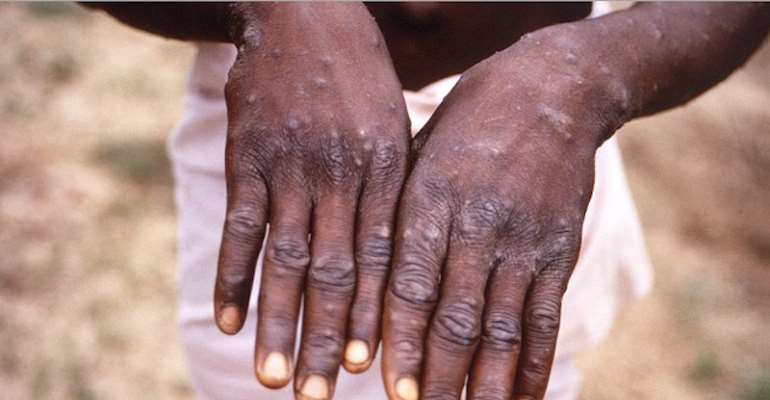Knowing A Little About Monkey Pox

Given the aphorism that “Journalists like to joke that they know a little bit about everything and a lot about nothing”, I was inspired to know a little bit about Monkey Pox and share it for public consumption, besides the opinion article I wrote about it few days ago, and which was published on this online news medium. Since it was published, I have been inundated with questions about what it is all about, and how it can be prevented.
As a writer and Journalist that is desirous of bringing the foregoing maxim to bear on the field, it is expedient to say that I found a rich resource concerning Monkey Pox on Mayo Clinic’s website. To those that are just coming across the name, Mayo Clinic, for the first time as mentioned in this context, it is expedient to clarify that the Clinic is a nonprofit hospital system with campuses in Rochester, Minnesota, Scottsdale and Phoenix, Arizona, and Jacksonville, Florida. Mayo Clinic employs 63,000 people, including more than 4,500 physicians and scientists and 58,400 administrative and allied health staff, as of 2018.
However, over the years, I have carved a niche for myself writing about human-centered articles, specifically on the plight of women, children and other vulnerable demographic segments of Nigeria’s population. However, I am in this context bringing what I know a little concerning Monkey Pox by virtue having the information that was liberally shared to global public by Mayo Clinic.
As gathered from the Clinic’s blog, in a post titled, “Monkey pox: What is it and how can it be prevented?” “Monkey pox is a rare disease caused by the monkey pox virus. The monkey pox virus often affects rodents, such as rats or mice, or nonhuman primates, such as monkeys. But it can occur in people. Monkey pox often occurs in central and west Africa. Cases outside of Africa are often due to international travel, imported animals and Close contact with an animal or person with monkey pox”
Concerning the symptoms of monkey pox, the Clinic asserted that monkey pox symptoms may start 5 to 21 days after being infected with, saying that the time between when someone is exposed to the disease and when symptoms begin to be noticeable is called the incubation period, and that Monkey pox symptoms last 2 to 4 weeks and may include: fever, skin rash, headache, muscle and back aches, chills, tiredness and swollen lymph nodes.
It explained that “About 1 to 4 days after you begin having a fever, a skin rash starts. The rash often first appears on the face, hands or feet and then spreads to other parts of the body. The monkey pox rash goes through many stages. Flat, red spots turn into blisters. Then the blisters fill with pus, scab over and fall off over a period of 2 to 4 weeks.
It warned that monkey pox can be spread while the symptoms persist from when the symptoms start until the rash and scabs heal. The Clinic advised that any sufferer of the disease should see a health care provider if new rash or any monkey pox symptoms occurs.
On how monkey pox spread, it advised that the virus that causes the disease spreads through close contact with an infected animal or person, and that it can spread when a person handles materials such as blankets that have been in contact with monkey pox.
It enlightened that monkey pox spreads from an animal to a person through animal bites or scratches, getting wild game ready to cook for food, eating products made of infected animals, direct contact with body fluids or rashes of animals with monkey pox, and asserted that monkey pox spreads from a person to a person through direct contact with rashes, scabs or body fluids of a person with monkey pox
In the same vein, it stated in the post that extended close contact (more than four hours) with respiratory droplets from an infected person can also lead to the disease being contacted.
It also stated that other means of contact through which the disease can be contacted cut across handling clothes, sheets, blankets or other materials that have been in contact with rashes or body fluids of an infected person even as infected pregnant person can lead to a fetus being infected.
Now the question, “What can I do to prevent infection with or the spread of monkey pox?” In addressing the foregoing question, the Clinic in the post advised that the following steps to prevent infection with or the spread of monkey pox should be taken.
It advised that animals that are considered to be carriers of the virus should be avoided, and that handling of clothes, sheets, blankets or other materials that have been in contact with an infected animal or person should equally be avoided.
To a large extent, it warned that people who have monkey pox should be isolated from healthy people, and advised that people should always was their hands well with soap and water after any contact with an infected person or animal, adding that some smallpox vaccines can prevent monkey pox. They include the ACAM2000 and Jynneos vaccines. It stated in the post that these vaccines can be used to prevent monkey pox because smallpox and monkey pox are caused by related viruses.
Furthermore, it says health care providers may suggest that people who have been exposed to monkey pox get vaccinated, and that the Centre for Disease Control (CDC) does not recommend everyone get vaccinated against monkey pox.
On the treatment of anyone infected with monkey pox, it says the treatment for most people with the disease is aimed at relieving symptoms, and added that care may include drinking enough liquids and pain management.
It explained that there is no specific treatment approved for monkey pox, and that health care providers may treat monkey pox with some antiviral drugs used to treat smallpox, such as tecovirimat (TPOXX) or brincidofovir (Tembexa). It further advised that for those unlikely to respond to the vaccine, care providers may offer vaccinia immune globulin, which are antibodies from people who have been given the smallpox vaccine. Thank you for reading this piece, and endeavor to stay safe from the disease which has can damage and disfigures anyone’s skin in few weeks.
Sandra Ijeoma Okoye (Author)

